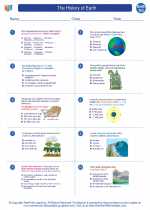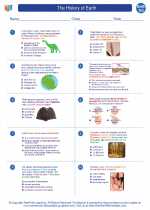Earthworms
Earthworms are a type of annelid worm that belong to the phylum Annelida. They are found in soil all around the world and play a crucial role in aerating and enriching the soil, making them an important component of the ecosystem.
Anatomy of Earthworms
Earthworms have a long, cylindrical body with a distinct head and tail. Their body is made up of segments, each of which contains muscle, nerve, and reproductive tissues. They have a digestive system with a mouth, pharynx, esophagus, crop, gizzard, and intestine. Earthworms also have a closed circulatory system with five aortic arches that function as their hearts.
Ecological Importance
Earthworms are ecosystem engineers, as they play a vital role in the decomposition of organic matter and the formation of soil. Their burrowing activities help to aerate the soil, allowing air and water to penetrate deeper into the ground. This, in turn, improves soil structure and fertility, making it more conducive for plant growth.
Study Guide
- Describe the anatomy of an earthworm, including its digestive system and circulatory system.
- Explain the ecological importance of earthworms and their role in soil health.
- Discuss the impact of earthworms on agriculture and gardening practices.
- Compare and contrast the life cycles of earthworms with other types of annelid worms.
- Research and present a case study on the use of earthworms in vermicomposting and their contribution to sustainable waste management.
By studying earthworms, you can gain a deeper understanding of their ecological significance and the ways in which they contribute to the health of our planet's ecosystems.
.◂Earth Science Worksheets and Study Guides High School. The History of Earth

 Worksheet/Answer key
Worksheet/Answer key
 Worksheet/Answer key
Worksheet/Answer key
